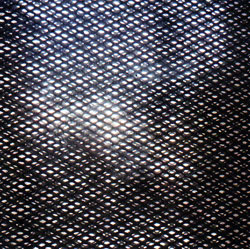
The first meeting on disc of two of the finest and most innovative electroacoustic instrumentalists in Germany, performing on reeds, trumpets, radio, speakers, and preparations.
Out of Stock
Quantity in Basket: None
Log In to use our Wish List
Shipping Weight: 4.00 units
Sample The Album:
Lucio Capece-soprano saxophone, bass clarinet, preparations
Birgit Ulher-trumpet, radio, speakers, preparations
Click an artist name above to see in-stock items for that artist.
Label: Another Timbre
Catalog ID: at41
Squidco Product Code: 14585
Format: CD
Condition: New
Released: 2011
Country: UK
Packaging: Jewel Tray
Recorded live on May 14th, 2010 at Blurred Edges Festival in Hamburg by Michael Maierhof and Boris Vogeler.
Three pieces from 2010, the first meeting on disc of two of thefinest and most innovative instrumentalists in Germany.
Another Timbre's Interview with Birgit Ulher, February 2011
Listening to Choices there seems such a similarity between your andLucio's approaches to your respective instruments, that it's almostsurprising that this is your first disc as a duo. When did you firstplay with Lucio?
- In September 2008 I shared a concert with him at Alberto Ukebana inBerlin, where we both played with other musicians. As we liked eachother's playing we decided to try playing together, and did this thenext time I came to Berlin. I felt an affinity with his approachstraightaway and it worked musically from the beginning.
You both use preparations to great effect, and at times Choices soundsas close to percussion as it does to wind or brass music. Have you madea conscious decision to distance yourself from the 'natural' sound of atrumpet? Or do you sometimes play 'pure' notes in an improvisingcontext?
- I always had an affinity with percussion and used to play it forseveral years, though mostly just for myself. I rarely play 'pure' notesin an improvising context because I think everything in this area hasbeen done already. I'm more interested in the subtle tonality and finegradations between sounds than in the obvious one, which is generallycalled tonality. The sounds have an internal structure, and thepreparations are used as resonating systems. For me this is the resultof many years working on the sound of the trumpet and not a question ofhow far I can get away from its 'natural' sound. But it's also been aconscious decision to work in the field which interests me most. I'ddescribe this field as material research and the placement of sounds ina time structure.
You trained as a visual artist, and are largely self-taught as amusician. Does your background in the visual arts affect the way youapproach your instrument?
- Absolutely. As a visual artist I have been into material research aswell. In the visual arts it is much more common to work in very specificareas, while in music it is still common to play different styles ofmusic. Maybe it has to do with the different tasks of composers andinterpreters, which never existed in the visual arts. Morton Feldman hasa great point on this in his essay 'The Anxiety of Art'.
Lucio has frequently been linked with the term 'reductionist', and onChoices your playing is very similar to his. But I know it's a termthat you're not altogether happy with. What are your reservations aboutthe concept?
- My playing on Choices isn't that far from my playing on my solo CD'Radio Silence No More' and the CD 'Tehricks' with Gregory Büttner.I have always been interested in reductionism, but I don't like to becategorised by any 'ism'. What I didn't like so much about the earlyBerlin reductionism was the strict concept and rules that came with it.On the other hand it might have been important at that time to make aradical break for creating something new. But I've always beensuspicious of categories and somehow I don't care whether something is'reductionist' or not as long as I'm convinced by the music.
Do you feel that in general there's been a gentle stepping away from theextremes of 'reductionism' within improvised music in Germany over thepast five years?
- Yes, it's quite a while since the term reductionism was establishedand the work of the musicians who were mainly involved has developed inmany different directions. Also the improvised music scene in Berlin haschanged a lot. Many musicians have moved there from all over the worldand brought their own approaches, so there are lots of differentapproaches at the moment. In Berlin there's currently a tendency todissociate from the term 'improvised music' and work more on conceptualor composed pieces.
Berlin has historically been the centre for improvised music in Germany,and you went there to record two of the tracks on Choices in Lucio'sstudio. But the long piece on the disc was recorded at a festival inHamburg, where you've been based for nearly 30 years. Do you thinkbeing outside Berlin has advantages as well as difficulties for animprovising musician in Germany? - Yes, it does. Now I'm quite contentliving in Hamburg, but for many years I thought about moving to Berlin,and would have for sure if Hamburg wasn't so close. I've always playedwith Berlin musicians like Chris Heenan (who is part of my groupNordzucker) and Ute Wassermann, to name just those I work withregularly. What I like about the Berlin scene is that improvised musicis taken and discussed really seriously, which isn't always the case inHamburg. And there are certainly many more interesting musicians inBerlin. But there are so many musicians there that there's more of aseparation from other musicians, which doesn't happen so much inHamburg, because the scene here is very small. Sometimes there's a hypeabout certain ideas or concepts in Berlin, which is quite uncriticallytaken over. I'd be afraid of getting stuck in Berlin; you can play a lotof gigs there, and great musicians come to town all the time, but Iguess that while this would keep you very busy, maybe you'd forget aboutworking outside the city. If you live in Hamburg you really have to workon getting around, otherwise you'll be stuck there with very smallinput. But the advantage of living in Hamburg is being able toconcentrate on your own work without the distraction of hundreds ofconcerts happening every month. And since the improvised music scene isvery small you get in contact much more with other scenes likeelectronic or new music. There's been a lot going on here in the lastfew years, since we founded an association for sound art, improvised,electronic and composed music. We found new ways of organising concertslike the 'blurred edges festival', where one track of Choices wasrecorded.

The Squid's Ear!
Artist Biographies
• Show Bio for Lucio Capece "Lucio Capece: Argentinian musician based in Europe since 2002, specifically in Berlin since 2004. Capece followed education as a classical guitarist and jazz saxophonist finishing studies at the Ginastera Conservatory in Morón, Buenos Aires (9 years career), and took self supported private lessons in Bass Clarinet (Martin Moore) , Saxophone and Jazz improvisation (Carlos Lastra, Gustavo Alsberg, Quique Sinesi) in Buenos Aires, Lyon (France, with Louis Sclavis), New York (meetings with Marilyn Crispell, Gerry Hemingway, Tim Berne, Hank Roberts, Jim Black) and Chicago. (Lessons and concerts with Gene Coleman) In Argentina he was part as a performer and composer of the ensemble Avion Negro and the trio Casual, working in the area of Contemporary jazz. Since the late 90´s he offered music in the context of Electro Acoustic Improvisation, focused in quietness, attentive listening and granular material. Since 2011 he dedicates to offer works focused in the Perception experience, that he performs mainly in solo and in the context of occasional collaborations based in the same interest. He composes his own pieces that may include improvisation and different ways of writing. He uses tools like Flying Speakers hanging from Helium Balloons, Speakers as Pendulums, Analog synthesiser, Sine Waves and Noise Generators, Drum Machines, Ultra- Violet Lights, Sensors as much as the instruments that he has played for 25 years: Bass Clarinet and Soprano Saxophone, adding recently a 100 years old Slide Saxophone. He has also written compositions for Ensembles working the same aspects in the context of traditional Instrumentations. He has performed his own sound interventions in spaces like The Cathedral of Bern (Zoom In Festival, 2012) The Mambo Museum in Bologna (Live Arts week 2012),the German Pavilion built by Mies Van der Rohe in Barcelona, the Halle des Expositions built by Alexandre Gustave Eiffel in Evreux, France ( L ´Atelier series) the Bauhaus Archive in Berlin, and the Colón Theatre in Buenos Aires where he offered an interactive installation for children. Beyond instrumentation and tools, the main intention is to focus in the physical-social-spatial human experience. Capece has played and released CD´s and LP´s with musicians like Radu Malfatti, Keith Rowe, Mika Vainio, Vladislav Delay, David Sylvian,Kevin Drumm, Lee Patterson, Christian Kesten, Sergio Merce, Toshimaru Nakamura, Robin Hayward, Taku Sugimoto, Ilpo Vaisanen, Julia Eckhardt, Tisha Mukarji, Annette Krebs, Andrea Neumann, Axel Dörner, Angharad Davies, Rhodri Davies, Burkhard Beins, among others. He has released Cd´s and LP´s in labels like B-Boim, Editions Mego ( Austria), Another Timbre, Hideous Replica, Entr´acte, Leaf ( UK), PAN (Germany), Potlatch, Drone Sweet Drone (France), Formed ( USA), Mikroton , Intonema (Russia), Organized Music from Thessaloniki ( Greece), No Seso (Argentina), etc His collaboration record "Trahnie" ( Editions Mego) with Mika Vainio was considered among the best 10 records of the year in the category "Outer Limits" by the magazine The Wire, in 2009. He has worked with dancers and choreographers David Lakein (Amsterdam), Ayara Hernandez (Berlin) and doing interventions in public spaces in Buenos Aires together with the choreographer Andrea Servera (Ex member of the legendary collective "El Descueve") As a performer he has worked with Pauline Oliveros, Peter Ablinger, Antoine Beuger, Michael Pisaro, Alex Arteaga, Christian Wolff, Phill Niblock as part of the Ensembles Q-O2 from Belgium, and Konzert Minimal from Berlin, together with the musicians Johnny Chang, Koen Nutters and Hannes Lingens. He organises since 5 years the one day Festival "Perceptive Turns" in Berlin." ^ Hide Bio for Lucio Capece • Show Bio for Birgit Ulher "Born 1961 in Nuremberg, she studied the visual arts, which still have an important influence on her music. Since moving to Hamburg in 1982 she has been involved in free improvisation and experimental music. Since then she has "established a distinguished grammar of sounds beyond the open trumpet" (jazzdimensions.de). She works mainly on extending the sounding possiblities of the trumpet by using splitting sounds, multiphonics and granular sounds and has developed her own extended techniques and preparations for producing these sounds. Besides this material research she is especially interested in the relation between sound and silence.Since 2006 Birgit Ulher works with radios and uses extended speakers, fed with radio noise in her trumpet mutes. The trumpet functions as an acoustic chamber and modulates the radio noise, thus the trumpet is transmitter and receiver at the same time. Her work with radio is documented on the CD 'Radio Silence No More', released 2007 on Olof Bright.The same concept is the basis of the duo with Gregory Büttner, where Büttner plays his sound contributions via a laptop with an output to a small speaker which Ulher uses a s trumpet mute.Their first CD 'Tehricks' based on this concept was released 2009.She performs solo, with dancers, working ensembles, and one-time collaborations with musicians from around the world. She has been organising the festival of improvised music Real Time Music Meeting for over ten years. Music performances in Europe, USA, South America, Russia and the Middle East, together with UNSK (Birgit Ulher / Martin Küchen / Lise-Lott Norelius / Raymond Strid), the Trio PUT (with Ulrich Phillipp and Roger Turner), Nordzucker (with Lars Scherzberg and Michael Maierhof), Heiner Metzger, Martin Klapper, Tim Hodgkinson, Dorothea Schürch, Rhodri Davies, Robyn Schulkowsky, Michael Zerang, Damon Smith, Lou Mallozzi, Gino Robair, Ute Wassermann, Albert Márkos, Sven Ake Johansson, Gene Coleman, Ernesto Rodrigues, Heddy Boubaker, Tim Perkis, Bryan Eubanks, Ariel Shibolet, Christoph Schiller and Sean Meehan, Forbes Graham, Leonel Kaplan, Gregory Büttner, Lucio Capece, Eric Leonardson and Bill Hsu. Lectures/Workshops at Queen's University of Belfast, Haifa University, SAIC - School of The Art Institut of Chicago, Hochschule für Musik Basel, Workshop Area Sismica in Forlí, Italy, Workshop Anáhuac 33, Mexico City, Workshop Galeria Mérida, Mérida Mexico and Certain Sundays, Berlin. Residencies at AIR Krems, Austria 2017, ArtInRealeases - GIS Studio - AIR Mexico 2016, Mexico City, Künstlerhaus Lukas, Ahrenshoop 2015, QO-2 werkplaats, Brüssel, 2010, Casa Zia Lina, Elba, Italy, Foundation Thyll-Dürr, 2001 and 2003, Boswil, MKS, Switzerland, 1994" ^ Hide Bio for Birgit Ulher
11/5/2024
Have a better biography or biography source? Please Contact Us so that we can update this biography.
11/5/2024
Have a better biography or biography source? Please Contact Us so that we can update this biography.
Track Listing:
1. physical 9:16
2. chance 27:44
3. orbital 4:51
Improvised Music
Electro-Acoustic
Electro-Acoustic Improv
European Improv, Free Jazz & Related
Staff Picks & Recommended Items
London & UK Improv & Related Scenes
Free Improvisation
Duo Recordings
Search for other titles on the label:
Another Timbre.


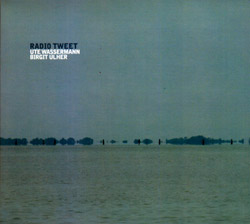

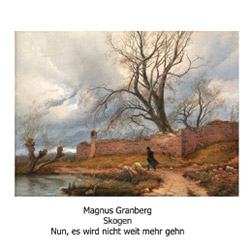
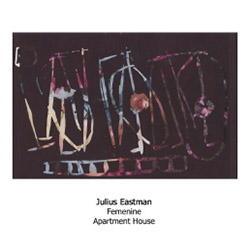
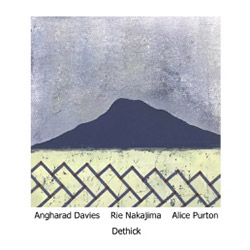
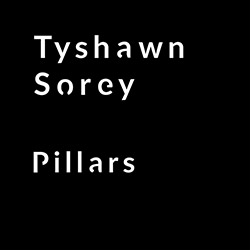


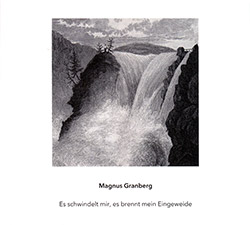










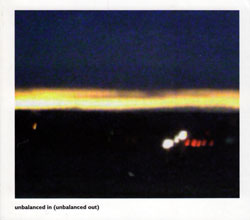
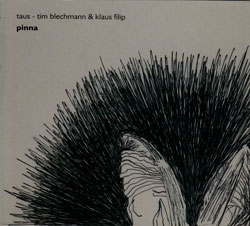
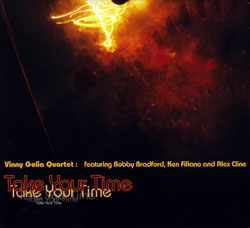
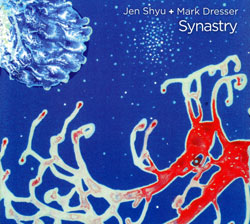
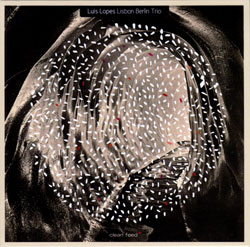
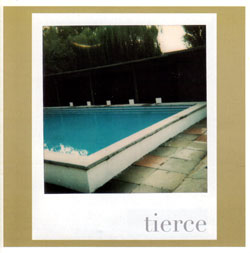





![Warren, Kenny (Warren / Hoffman / Ellman): Sweet World [VINYL]](https://www.teuthida.com/productImages/misc4/35451.jpg)


![Blake, Ran / Dave Knife Fabris: Live Amsterdam 2006, First Visit [CD + POSTCARDS]](https://www.teuthida.com/productImages/misc4/35275.jpg)
![Sanna, Claudio: Compositori Sardi Contemporanei II [2 CDs]](https://www.teuthida.com/productImages/misc4/35317.jpg)














![Musicworks Magazine: #149 Fall 2024 [MAGAZINE + CD]](https://www.teuthida.com/productImages/misc4/35470.jpg)

![Nevai, Nandor: <<The PRICE of FRONTIER>> Book 1: FULK [BOOK + 4 CDs]](https://www.teuthida.com/productImages/misc4/35464.jpg)
![Nevai, Nandor: <<The PRICE of FRONTIER>> Book 2: MARTIAL [BOOK + 4 CDs]](https://www.teuthida.com/productImages/misc4/35465.jpg)
![Nevai, Nandor: <<The PRICE of FRONTIER>> Book 3: JASSOM [BOOK + 4 CDs]](https://www.teuthida.com/productImages/misc4/35466.jpg)
![Nevai, Nandor: <<The PRICE of FRONTIER>> Book 4: HARD-WON [BOOK + 4 CDs]](https://www.teuthida.com/productImages/misc4/35467.jpg)



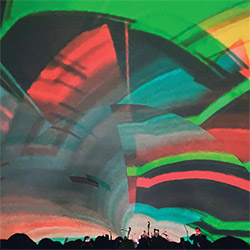
![Mazurek, Rob & Exploding Star Orchestra: Live at Adler Planetarium [VINYL]](https://www.teuthida.com/productImages/misc4/35233.jpg)
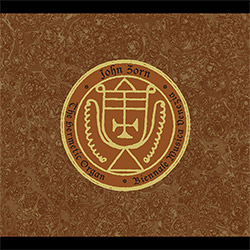
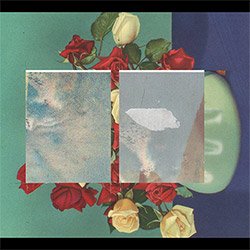
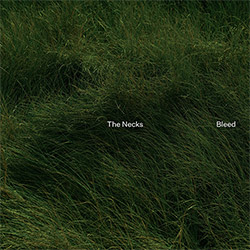
![Necks, The: Bleed [VINYL BLACK]](https://www.teuthida.com/productImages/misc4/35250.jpg)
![Necks, The: Bleed [VINYL GREEN + DOWNLOAD]](https://www.teuthida.com/productImages/misc4/35251.jpg)
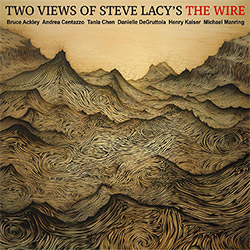

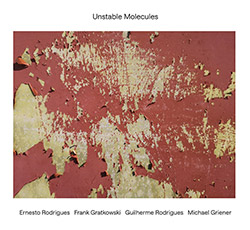

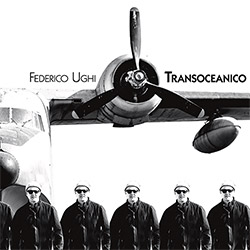
![Attias, Michael (Attias / Leibson / Pavolka / Ferber / Hoffman): Quartet Music Vol. I: LuMiSong [VINYL]](https://www.teuthida.com/productImages/misc4/34878.jpg)
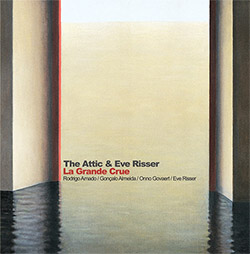
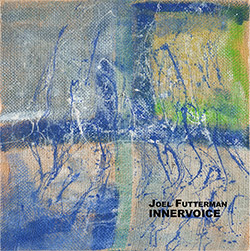



![DNS: Taking Big Bites Of The Khandas Three Cafes Deep [2 CDs]](https://www.teuthida.com/productImages/misc4/35334.jpg)




![Cleaver, Gerald: The Process [VINYL]](https://www.teuthida.com/productImages/misc4/34966.jpg)




![Alva Noto: HYbr:ID II [VINYL 2 LPs]](https://www.teuthida.com/productImages/misc4/35201.jpg)

![Baron, Derek / Luke Martin: Distinct and Concealed [CASSETTE + DOWNLOAD]](https://www.teuthida.com/productImages/misc4/35079.jpg)

![Lyle, Erica Dawn : Colonial Motels [CASSETTE + DOWNLOAD]](https://www.teuthida.com/productImages/misc4/35080.jpg)







![Alva Noto: HYbr:ID III [VINYL 2 LPs]](https://www.teuthida.com/productImages/misc4/35011.jpg)
![Kubisch, Christina / Trondheim Voices: Stromsanger 2022 For Six Voices And Electromagnetic Waves [VINYL]](https://www.teuthida.com/productImages/misc4/34628.jpg)
![Ristic, Manja / Joana Guerra / Veronica Cerrotta: Slani pejzazi [CASSETTE + DOWNLOAD]](https://www.teuthida.com/productImages/misc4/34928.jpg)
![Euro Herc: Segnali [CASSETTE + DOWNLOAD]](https://www.teuthida.com/productImages/misc4/34929.jpg)







![Zurria, Manuel: Fame di Vento [3 CDs]](https://www.teuthida.com/productImages/misc4/35167.jpg)

![Granberg, Magnus / Nattens Inbrott / Skogen: Holde Traume, Kehret Wieder! [2 CDs]](https://www.teuthida.com/productImages/misc4/35038.jpg)
![Frey, Jurg: Outermost Melodie [2 CDs]](https://www.teuthida.com/productImages/misc4/35039.jpg)

![Pavone, Jessica: Reverse Bloom [VINYL]](https://www.teuthida.com/productImages/misc4/34895.jpg)




![Modney (Modney / Wooley / Gentile / Roberts / Pluta / Symthe / ...): Ascending Primes [2 CDs]](https://www.teuthida.com/productImages/misc4/34852.jpg)






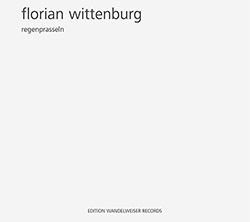

![Kirschner, Kenneth / Joseph Branciforte: From the Machine: Volume 1 [VINYL]](https://www.teuthida.com/productImages/misc4/30767.jpg)

![Elephant9 with Terje Rypdal: Catching Fire [VINYL 2 LPs]](https://www.teuthida.com/productImages/misc4/35355.jpg)
![Deerlady (Obomsawin, Mali / Magdalena Abrego): Greatest Hits [VINYL]](https://www.teuthida.com/productImages/misc4/34876.jpg)




![Haino, Keiji: Black Blues [2 CDs]](https://www.teuthida.com/productImages/misc4/35109.jpg)



![Surplus 1980: Illusion of Consistency [CD]](https://www.teuthida.com/productImages/misc4/35069.jpg)
![Staiano, Moe: Away Towards the Light [VINYL + DOWNLOAD]](https://www.teuthida.com/productImages/misc4/35037.jpg)




![Caveira (Gomes / Sousa / Abras / Ferrandini): Ficar Vivo [VINYL]](https://www.teuthida.com/productImages/misc4/34643.jpg)
![Gregg, J. J. / David Van Auken: Lunar Prairie [CD w/ DOWNLOAD]](https://www.teuthida.com/productImages/misc4/34611.jpg)

![Coultrain: Mundus [VINYL]](https://www.teuthida.com/productImages/misc4/32439.jpg)
![Mattin: Songbook #6 [VINYL]](https://www.teuthida.com/productImages/misc4/27317.jpg)
![Punkappella: Wake Up [7-inch VINYL]](https://www.teuthida.com/productImages/misc4/17519.jpg)
![Residents, The: WARNING: UNiNC.: Live And Experimental Recordings 1971-1972 [VINYL 2 LPs]](https://www.teuthida.com/productImages/misc4/31521.jpg)
![Coultrain: Phantasmagoria [VINYL]](https://www.teuthida.com/productImages/misc4/30142.jpg)
![Lennon, Sean Ono: Asterisms [VINYL]](https://www.teuthida.com/productImages/misc4/34517.jpg)

![Rotem Geffen: The Night Is The Night [VINYL]](https://www.teuthida.com/productImages/misc4/34631.jpg)
![Coley, Byron: Dating Tips for Touring Bands [VINYL]](https://www.teuthida.com/productImages/misc4/17906.jpg)

![Lost Kisses: My Life is Sad & Funny [DVD]](https://www.teuthida.com/productImages/misc4/lostKissesDVD.jpg)